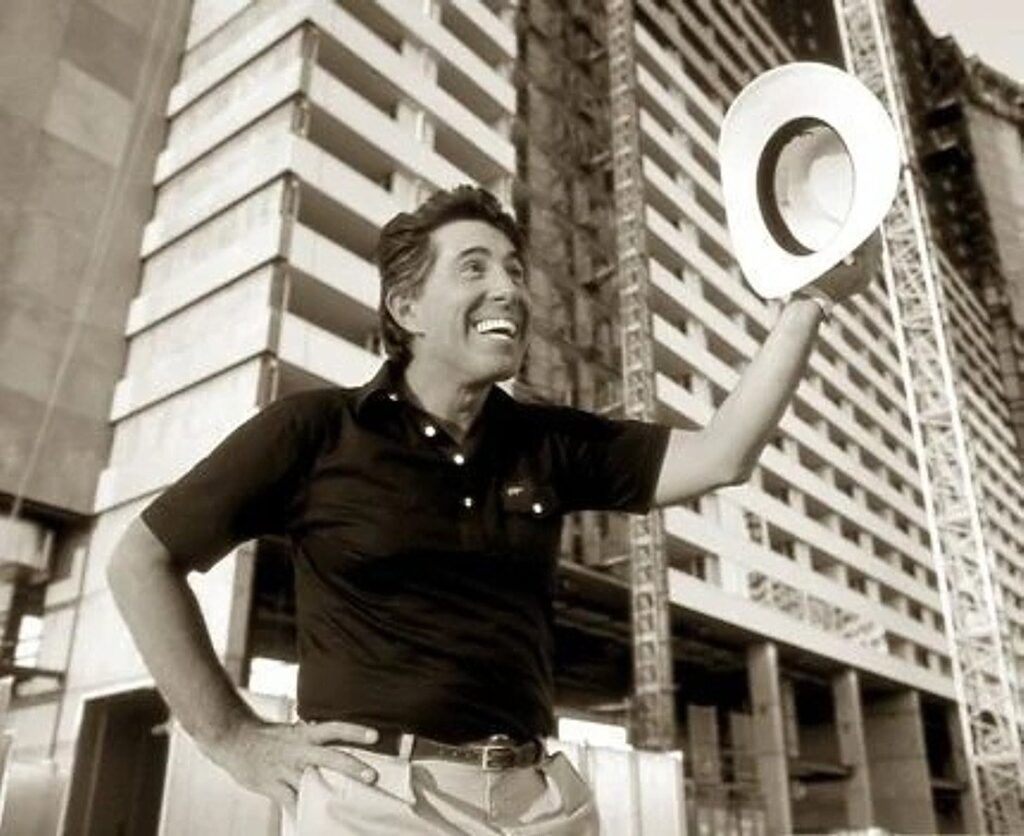Posted on: July 15, 2024, 09:30h.
Last updated on: July 15, 2024, 10:54h.
This Thursday, The Mirage, the casino resort that remade Las Vegas, closes up shop for good.
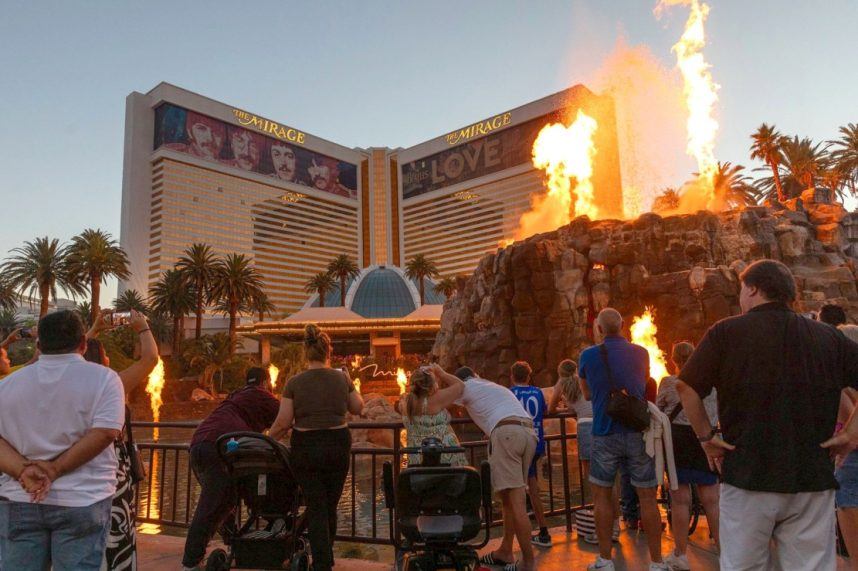
The body of what was once the world’s largest resort will live on, as the 3,000-room structure with the 91,000-square-foot casino gets transformed into the second Hard Rock Las Vegas over the next three years. Its owners, the Seminole Tribe of Florida, plan to gut the joint and build a 600-suite tower shaped like a guitar out front, where The Mirage volcano now sits in its lagoon.
According to many users of social media, however, The Mirage will live on only in a zombie-like state, with a new guitar hotel but without a soul.
“Vegas is now dead to me,” Christopher Vance wrote in a post on the resort’s official Facebook group.
“This is so wrong,” added Matt Treat. “That casino is still beautiful. Do Treasure Island instead.”
The Mirage That Saved Vegas
In the mid-1980s, Las Vegas had lost its way. Once-glittering casino hotels the Dunes, Desert Inn, and Riviera were aging badly. The Strip had become a national punchline — a place to lose money while barely being placated by cheap, second-rate entertainment and cheaper third-rate buffets.
The 1987 “Black Monday” stock-market crash and resulting global recession ate into visitor numbers as well — as did the Atlantic City, which offered East Coasters the same unimpressive experience closer to home.
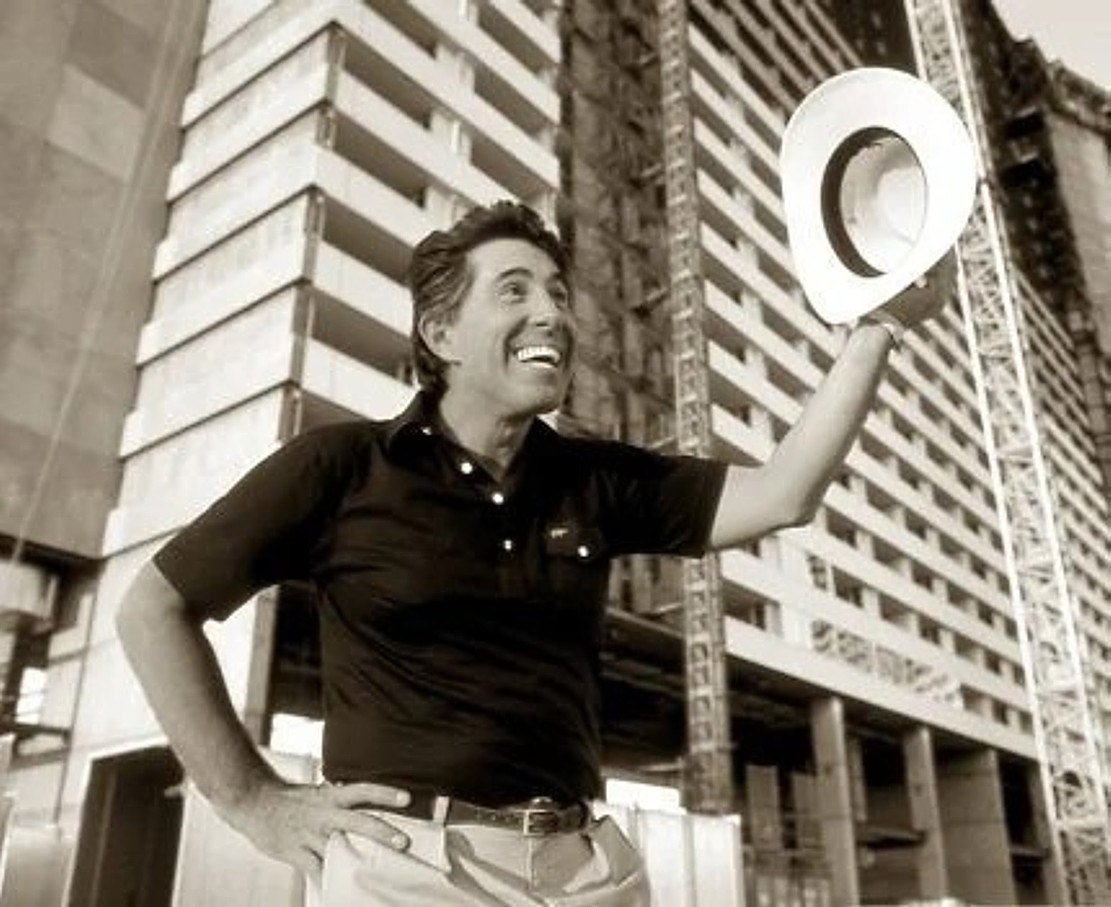
A radical new vision was required to transform Las Vegas’ image and attract new interest and investment.
That vision would come from Steve Wynn, the intractable Golden Nugget owner who sold the Atlantic City outpost of that casino resort, for $440 million, just to help will his vision into reality.
Wynn’s radical idea was to impart the feeling of a Polynesian paradise smack in the middle of the Mojave Desert — a resort so crammed with luxury, entertainment, and surprises, it would be a destination in itself.
Before then, Vegas tourism basically involved picking a hotel and spending most of your vacation casino-hopping along the Strip.
Guests would enter Wynn’s new resort, which would open as the largest in the world, through a rainforest atrium with huge palm trees, exotic plants, and water features. They would look out onto a pool area with waterfalls and lagoons. And when they checked in, 450 fish from 80 species would swim around a 20,000-gallon saltwater tank behind the clerk’s head.
The simulated volcano out front would erupt every 15 minutes from dusk until midnight, giving passersby their first free Las Vegas Strip show.
An Unlikely Wynn
Today, Wynn’s vision is credited with transforming Las Vegas into a destination for world-class amenities, superstar residencies, and fine dining — along with prices to match.
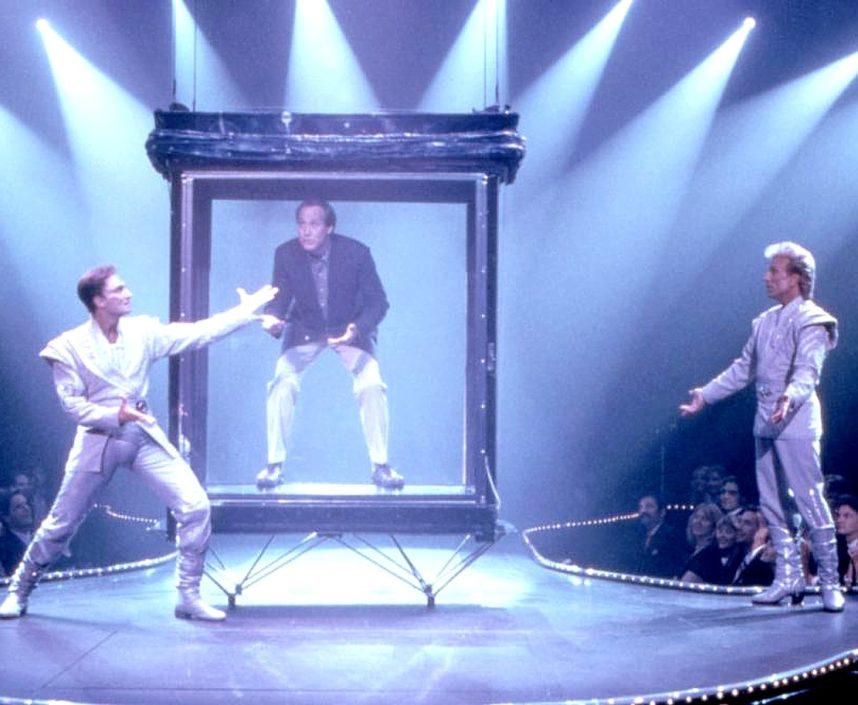
Most new Strip casinos resorts that followed, followed The Mirage formula — from the new MGM Grand in 1993, to the Monte Carlo in 1997, Wynn’s own Bellagio in 1998, Mandalay Bay in 1999, Paris Las Vegas and the Aladdin in 2000, the Palms in 2001, Wynn Las Vegas in 2005, the Cosmopolitan in 2010, Resorts World in 2021, and the Fontainebleau in 2023.
But when it first opened in November 1989, success was far from a sure bet for The Mirage.
Though the resort’s $630 million cost seems commonplace now, even when adjusted for inflation to $1.6 billion, that was more money than had ever been spent on a casino resort. Anywhere.
When it was reported at the time that The Mirage needed to generate an unheard-of $1.1 million per day just to service its debt — and that Wynn had financed it using risky junk bonds — analysts and competitors alike predicted failure.
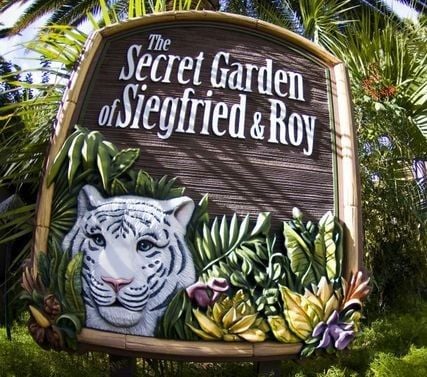
According to Wynn, Henry Gluck, CEO of Caesars World, told Mirage VP of Sports Bob Halloran at the time that the resort “would never open.”
But Wynn knew what he was doing by creating a haven for the wealthy. It allowed The Mirage to break Vegas’ $100-per-night room ceiling for the first time, to host the Strip’s very first $100-per-ticket permanent resident headliner, Siegfried & Roy, and to open a dozen restaurants where meals for two routinely doubled that price.
”How could anyone understand Disneyland if all they’d ever seen was the Santa Monica Pier?” he told CNN in 1996.
Some Firsts Were Also Lasts
We’re looking at you, Siegfried & Roy. Ushered into Vegas by Jan Vinicky and her elephant, Tanya — late-’60s regulars at Circus Circus — the idea of wild animals performing for human entertainment didn’t age well.
Though it would have been doomed by the 2010s anyway, the trend came to an abrupt and savage end in Vegas on Oct. 3, 2003, on stage at The Mirage. That’s the night Mantacore the tiger nearly killed Roy Horn before a shocked live audience in what remains one of the most infamous moments in entertainment history.
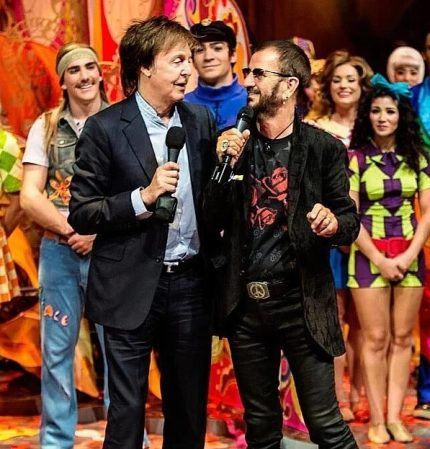
Though Wynn had already sold The Mirage to MGM Resorts by then, securing the only stage show ever produced by the Beatles, “LOVE,” was pretty much the only way to follow up a Siegfried & Roy without disappointing.
The much-loved Cirque du Soleil show took its final bows on July 7, after playing to 11.5 million satisfied guests, including former Beatles Paul McCartney and Ringo Starr on at least three occasions each.
“I can’t imagine Vegas without The Mirage Hotel and Casino,” commented Elena Stevens Boldrin in the official Facebook group. “I’ve spent many years going to Vegas and staying there, celebrating my birthdays. Took all three kids to Vegas for their 21st birthday and stayed at The Mirage. Memories to last a lifetime. Just got back from there, our last hurrah! Saw The Love show for the 4th and final time.
“You will be missed.”




